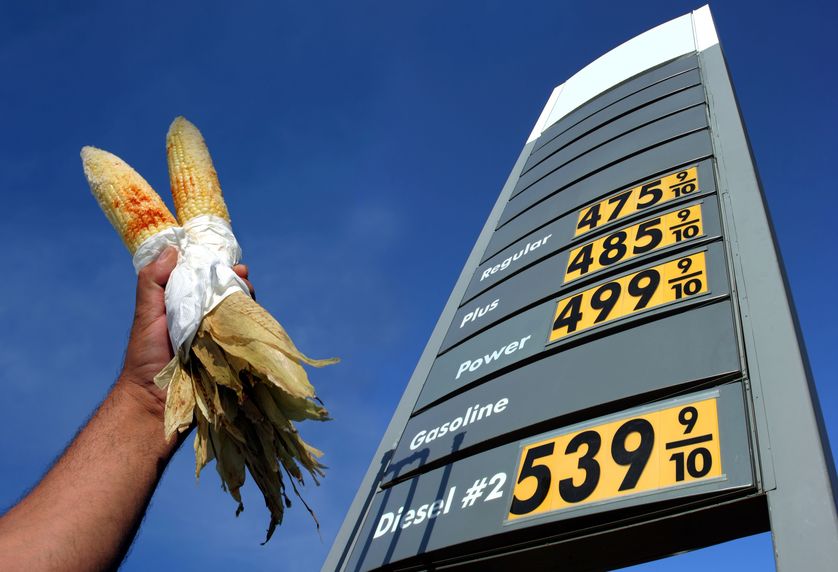During his long – and not always illustrious – political career, Bob Dole was fond of telling crowds on the campaign trail: “I’m the senator from ethanol.”
Dole, still with us at 98, is from Kansas, which along with Iowa, Illinois, South Dakota, Missouri, and Minnesota is part of the Great American Corn Belt. Because ethanol sold in the U.S. as a transportation fuel is derived from corn, ethanol and corn have become inseparable. Roughly 40% of the U.S. corn crop is refined into ethanol at 210 ethanol plants scattered across 27 states.
Friends in High Places
Coddled by politicians in the Midwest and Washington, D.C., ethanol was subsidized by American taxpayers for decades and protected by tariffs from foreign competition. Thanks to a 2005 law, the subsidies and tariffs finally went away, but they were replaced by a mandate requiring that a certain percentage of ethanol be blended into gasoline. Almost all gasoline currently sold in the U.S. is blended with 10% ethanol. Higher amounts are not recommended because of the potential damage ethanol (alcohol) could do to engines.
Ethanol is a low-BTU (British thermal unit) fuel, meaning that when it’s blended into gasoline, it actually lowers the energy content of the fuel. For the driving public, this has been a colossal rip-off. But it’s been a bonanza for the ethanol industry, and the corn lobby remains one of the most potent groups in Washington.
Thus, it came as a real surprise when Iowa lawmakers recently rebuffed an effort by the ethanol industry and its powerful political allies to raise the percentage of ethanol blended into gasoline at service stations in Iowa to 15%. Yes, that happened in Iowa, the nation’s top corn and corn-ethanol producer. The 15% mandate was backed by Gov. Kim Reynolds (R), House Speaker Pat Grassley (R) (Sen. Chuck Grassley’s grandson), and such groups as Iowa Renewable Fuels Association, Growth Energy, Archer Daniels Midland, Iowa Corn Growers, Bayer, Cargill, and POET.
The industry clearly wasn’t lacking in muscle. Yet it couldn’t get Hawkeye State lawmakers to go along with their 15% ethanol scheme. Service stations objected because they were going to have to shell out $500,000 each to retrofit their equipment by the 2026 deadline. Consumers, some of whom are employed by the ethanol industry or are farmers growing corn for ethanol, also said no, because they don’t want government, backed by a self-interested industry, mandating what they put into their fuel tanks.
“Think about what it says about a product when the government has to require its use under penalty of law,” notes Michael McKenna, a columnist for the Washington Times (June 17). McKenna is president of MWR Strategies and was deputy director of the Office of Legislative Affairs under President Trump.
The setback in Iowa was a long-overdue setback for a sprawling industry that has contributed absolutely nothing to the U.S. energy pool.
